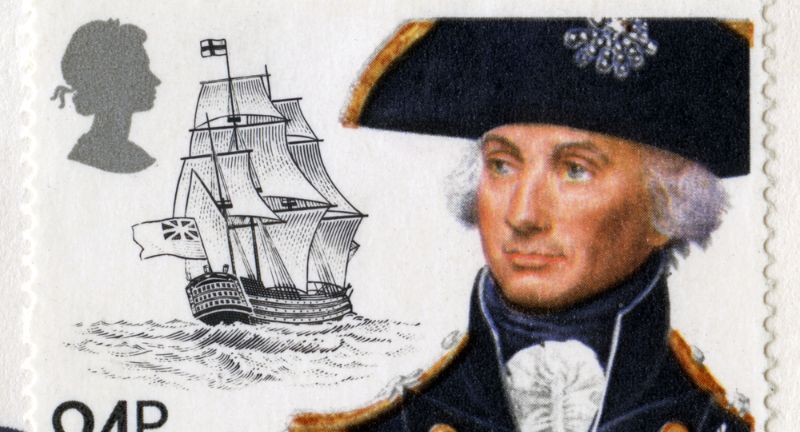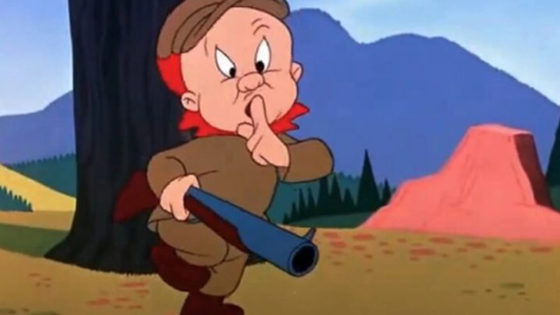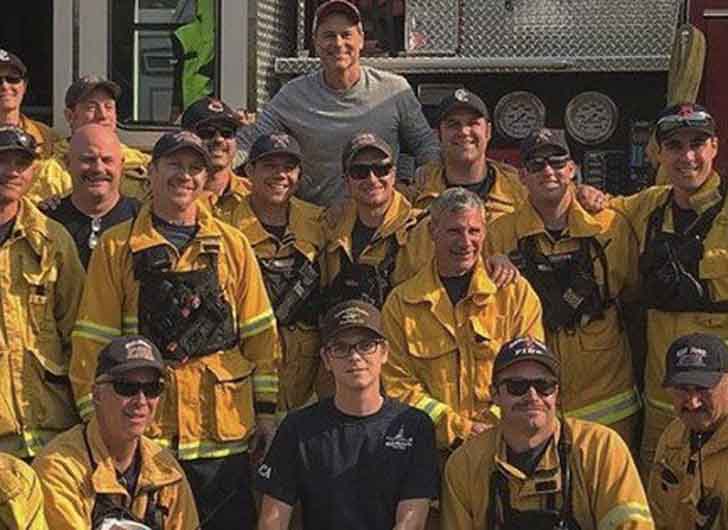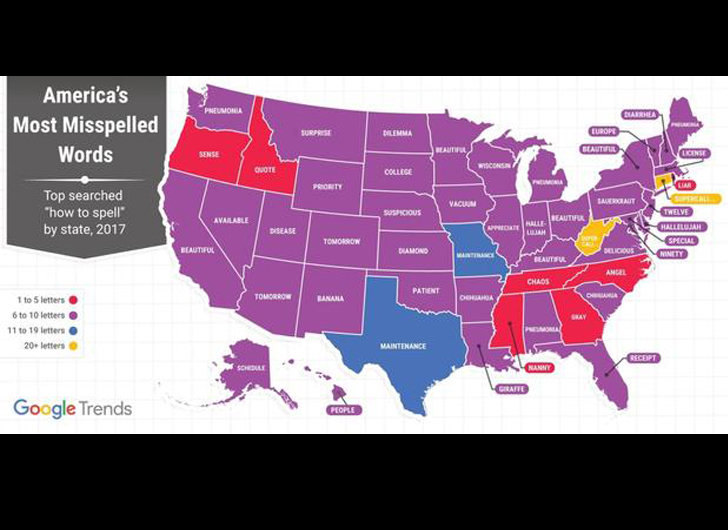
Shutterstock
Popular sayings are woven into the fabric of everyday language, often used without a second thought to their origins. These phrases carry historical, cultural, and sometimes humorous backstories that reveal much about the societies from which they emerged. Understanding the roots of these expressions can deepen our appreciation for the language we use and the colorful history behind it. In this exploration, we delve into the fascinating origins of 30 well-known sayings. Each phrase not only adds flavor to our conversations but also connects us to the rich tapestry of human experience.
Bite the Bullet

Shutterstock
In the past, during battles, soldiers would bite on a bullet to endure the pain of surgery without anesthesia. The act of biting the bullet was a way to show bravery and resilience in the face of severe pain. This practice was necessary because the use of anesthetics was not widespread or available. Over time, the phrase came to symbolize accepting a difficult or unpleasant situation with courage.
Break the Ice

Shutterstock
The phrase “break the ice” originates from the practice of ships breaking ice to forge a path for others. In social contexts, it means making an introduction to ease tension or awkwardness. This nautical term has been adapted to describe starting a conversation in a social situation. It emphasizes the importance of taking the first step to create a more comfortable environment for everyone.
Butterflies in One’s Stomach

Shutterstock
The saying “butterflies in one’s stomach” comes from the fluttery feeling people get in their stomachs when they are nervous. This sensation is akin to the light, fluttering movements of butterflies. It is often experienced during moments of anticipation or anxiety. The phrase effectively captures the physical manifestation of nervousness.
Cat Got Your Tongue?

Shutterstock
One theory behind “cat got your tongue?” is its origin from the “cat-o’-nine-tails,” a whip used by the English Navy. Victims of this punishment were often left speechless from pain. The phrase evolved to describe someone who is unusually silent or at a loss for words. Its use highlights moments of unexpected silence or hesitation.
Costs an Arm and a Leg

Shutterstock
The saying “costs an arm and a leg” is thought to relate to the high cost of having a full-length portrait painted in the 18th century. Portraits that included limbs were more expensive due to the greater amount of work required. Thus, the phrase came to represent something very costly. It emphasizes the idea of a significant expense or sacrifice.
Don’t Count Your Chickens Before They Hatch

Shutterstock
This saying dates back to Aesop’s Fables, cautioning against being too confident in outcomes that have yet to materialize. It warns against assuming success or benefits prematurely. The phrase advises patience and realism in assessing future possibilities. It underscores the unpredictability of outcomes until they actually occur.
Elvis Has Left the Building

Shutterstock
This phrase was used by concert announcers to disperse crowds after Elvis Presley’s performances. It signified that the show was over and Elvis had physically left the venue. Over time, it became a way to indicate the conclusion of an event. The phrase emphasizes the finality of a situation or departure.
Every Cloud Has a Silver Lining

Shutterstock
The phrase “every cloud has a silver lining” comes from John Milton’s “Comus” (1634). It emphasizes optimism and looking for the positive in adverse situations. This saying encourages people to find the good in difficult circumstances. It reflects a hopeful perspective on challenges.
Get Up on the Wrong Side of the Bed

Shutterstock
This phrase comes from the ancient Roman superstition that the left side of anything was bad luck. Waking up on the “wrong” side of the bed suggested starting the day with misfortune. Today, it describes someone who is in a bad mood from the start of the day. The saying highlights the impact of one’s initial attitude on the rest of the day.
Go the Extra Mile

Shutterstock
This saying has biblical origins, where Jesus advises his followers to go a second mile when compelled to go one. It encourages putting in extra effort beyond what is required. The phrase has come to mean going above and beyond expectations. It highlights dedication and commitment in fulfilling tasks.
Hit the Hay

Shutterstock
In the early 1900s, mattresses were often sacks stuffed with hay. “Hitting the hay” meant going to bed. This phrase reflects the practice of preparing for sleep. Over time, it became a colloquial way of saying it was time to rest.
In a Nutshell

Shutterstock
The phrase “in a nutshell” likely originates from a story in Pliny’s Natural History. It describes the Iliad being written on a piece of parchment small enough to fit in a nutshell. The saying means expressing something concisely. It emphasizes brevity and clarity in communication.
Kick the Bucket

Shutterstock
The phrase “kick the bucket” likely comes from a method of suicide where a person stands on a bucket and kicks it away to hang themselves. It is a euphemism for dying. The saying emphasizes the finality of death. Over time, it became a common phrase to discuss the end of life.
Let the Cat Out of the Bag

Shutterstock
This phrase originates from market fraud where farmers would sell a pig in a sack but would swap it with a less valuable cat. Letting the cat out of the bag revealed the deception. It means to reveal a secret or disclose hidden information. The saying highlights the uncovering of the truth.
Once in a Blue Moon

Shutterstock
The phrase “once in a blue moon” refers to the rare occurrence of a second full moon in a single calendar month. This event happens approximately every two to three years. The saying signifies something that happens very infrequently. It emphasizes rarity and unusual timing.
Piece of Cake

Shutterstock
This phrase became popular in the 1870s when cakes were given as prizes in competitions. Winning a cake was considered easy, thus the phrase came to mean something simple to achieve. It emphasizes the ease of a task. The saying highlights a straightforward or effortless accomplishment.
Pull Someone’s Leg

Shutterstock
The saying “pull someone’s leg” likely originates from tripping someone up as a form of jest. It means to tease or joke with someone. The phrase emphasizes playful deception. Over time, it became a common way to describe light-hearted teasing.
Raining Cats and Dogs

Shutterstock
One theory is that “raining cats and dogs” comes from Norse mythology where cats symbolized heavy rains and dogs symbolized wind. It describes an intense downpour of rain. The saying emphasizes the severity of the weather. It reflects dramatic and turbulent conditions.
Read the Riot Act

Shutterstock
This phrase comes from an actual law passed in 1715 in England to control unruly crowds. Authorities would read a warning from the Riot Act before taking action. The saying means giving a stern warning or reprimand. It emphasizes the seriousness of addressing misbehavior.
Saved by the Bell

Shutterstock
The phrase “saved by the bell” originates from boxing, where the bell rings to end a round. This could save a boxer from being counted out. The saying means being rescued from a difficult situation at the last moment. It emphasizes timely intervention.
Show Your True Colors

Shutterstock
This nautical term refers to warships showing their flags (colors) to reveal their true identity. It means to reveal one’s true intentions or character. The phrase emphasizes authenticity and transparency. Over time, it became a common way to discuss honesty.
Spill the Beans

Shutterstock
This phrase possibly comes from ancient Greece where votes were cast using beans. Spilling them would reveal the vote early. It means to disclose a secret or reveal confidential information. The saying emphasizes unintended disclosure.
Take It with a Grain of Salt

Shutterstock
This phrase dates back to Pliny the Elder’s writings, suggesting that a grain of salt could be an antidote to poison. It implies skepticism. The saying means to view something with caution or doubt. It emphasizes critical thinking and discernment.
The Whole Nine Yards

Shutterstock
This saying is believed to come from World War II fighter pilots whose machine gun ammo belts were nine yards long. It means going all the way or using every possible resource. The phrase emphasizes complete effort. Over time, it became a common way to describe thoroughness.
Throw in the Towel

Shutterstock
This phrase originates from boxing, where a fighter’s corner throws a towel into the ring to stop the fight. It means to give up or admit defeat. The saying emphasizes surrender. Over time, it became a common way to discuss quitting.
Turn a Blind Eye

Shutterstock
This phrase comes from Admiral Horatio Nelson, who put a telescope to his blind eye to ignore a signal to withdraw during a battle. It means to ignore something deliberately. The saying emphasizes willful blindness. Over time, it became a common way to describe intentional ignorance.
Under the Weather

Shutterstock
Sailors used the phrase “under the weather” when feeling seasick. It implied being sent below deck to recover from rough weather. Today, it means feeling ill. The saying highlights the impact of adverse conditions on one’s health.
Wild Goose Chase

Shutterstock
The phrase “wild goose chase” comes from an old form of horse racing in England where horses followed a leader like geese in flight. It means a futile or hopeless pursuit. The saying emphasizes the difficulty of chasing something unattainable. Over time, it became a common way to describe pointless endeavors.
You Can’t Have Your Cake and Eat It Too

Shutterstock
This phrase has been in use since the 16th century. It means you can’t enjoy two mutually exclusive benefits at once. The saying emphasizes the impossibility of having everything. It highlights the need to make choices and accept trade-offs.
Your Guess Is as Good as Mine

Shutterstock
The phrase “your guess is as good as mine” implies that the speaker has no more knowledge about the answer than the person asking the question. It emphasizes equal uncertainty. The saying means that both parties are equally clueless. It highlights the shared lack of information.
Conclusion

Shutterstock
The origins of popular sayings offer a window into the past, illuminating the experiences and cultures that shaped them. By tracing these roots, we gain insight into how language evolves and preserves history. These expressions, rich with meaning and context, enhance our communication and connect us to previous generations. As we continue to use these sayings, we keep their stories alive and relevant. Let this exploration inspire you to delve deeper into the language and discover more hidden gems within our everyday speech.


























































